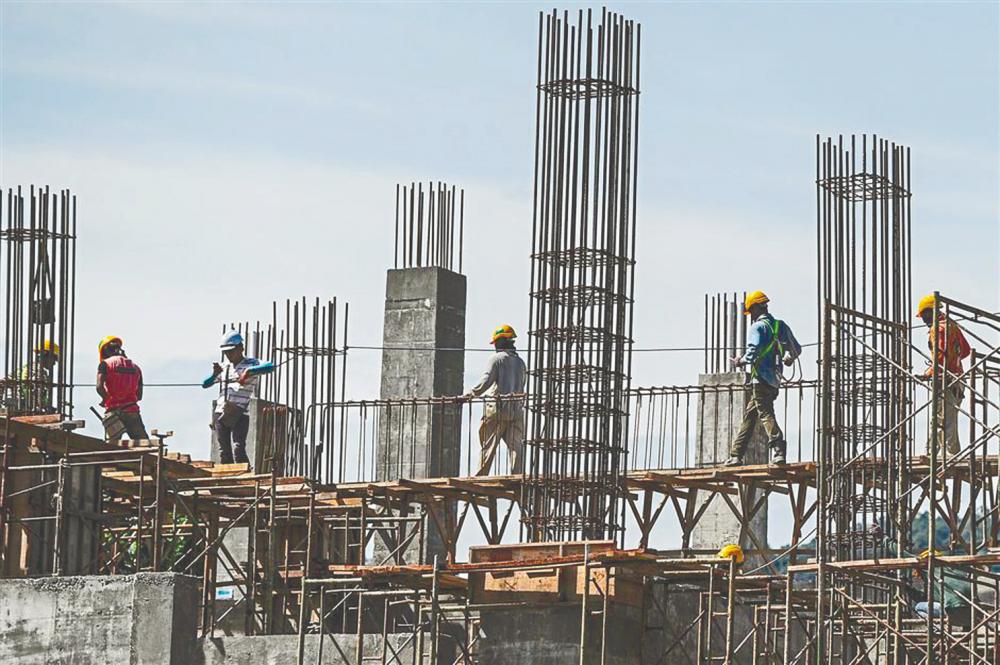PETALING JAYA: The RM10 billion Kita Prihatin economic stimulus package that was unveiled on Wednesday suggests that Malaysia’s economic recovery might not have met the government’s expectations, according to Inter-Pacific Securities head of research Victor Wan.
“The high frequency data indicated there is an economic recovery but there are some sectors that are not doing well, especially the construction sector,” he told SunBiz.
From channel checks, Wan observed there are fewer infrastructure projects and residential development jobs around, and if there are any, the progress for such jobs tends to be slower.
To date, the government has expended RM305 billion in cumulative stimulus measures.
According to analyst reports, the latest stimulus is estimated to increase the budget deficit by 0.7% of gross domestic product (GDP), on top of the government’s last projected budget deficit of 5.8%-6%.
In a note, CGS CIMB Research said that in the wake of the surprise announcement by opposition leader Datuk Seri Anwar Ibrahim, some uncertainty has arisen over the incumbent government’s ability to administer existing fiscal outlays as well as plans for a comprehensive medium- to long-term recovery programme in October and the tabling of Budget 2021 on Nov 6.
“Near-term policy implementation has not been made easier by yesterday’s events, with either the ruling government distracted by politics or the inherent pause in policymaking that comes with the changing of the guard,” it said.
At the current deficit levels, Wan raised concern that there might not be much room for further fiscal measures, should a black swan event materialise which could entail a deep recession with a prolonged bout of unemployment.
“Should a second wave emerge, which is probable if the pandemic spread in Sabah cannot be contained, we do not have the fiscal space to afford another lockdown.”
With regard to stimulus triggers, MIDF Research economist, Mazlina Abdul Rahman said key macroeconomic indicators have started to improve gradually but are still below pre-pandemic levels.
She said, for example, retail sales, a proxy for consumption/spending, are still recording year-on-year negative growth.
“Hence, I believe the government will monitor the performance from time to time and decide on further stimulus if required,” said Mazlina.
“Possible triggers for more stimulus could be surging Covid-19 cases on both domestic and global fronts particularly in our key trading partners, as it could worsen business and consumer sentiment.”
Sunway University Business School professor of economics Dr Yeah Kim Leng shares a similar concern as the global economy remains in dire straits and Malaysians will need to brace for a longer period of pain, at least until an effective vaccine is widely available in order for social and economic activities to normalise.
He said a deeper and longer-than-expected global recession which extends to next year and a more protracted pandemic with a delayed rollout of an effective vaccine might trigger further stimulus support. “However, the economy still has adequate monetary and fiscal space to counter black swan events although the capacity has diminished somewhat with the stimulus packages rolled out thus far,”
According to the latest figures by the Department of Statistics, Malaysia’s Leading Index (LI) rose for a third consecutive month in July 2020 with a 7.7% increase to 109.2 points, which illustrates a sharp rebound that indicates an economic recovery in the near future and a brighter economic outlook towards early 2021.
However, Chief Statistician Malaysia Mohd Uzir Mahidin said the signal should be perceived with caution since the pandemic threat still remains in Malaysia and globally.










